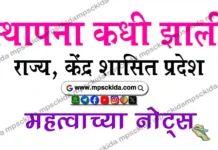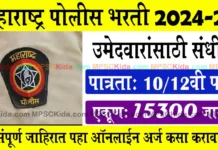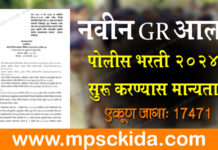Adjectives often sound similar and mean similar things, but are used differently in English. This can be very confusing for students. Here are my ‘Top 10’with explanations and examples:
Number 1 : Much and Many
Many: Means a lot of, it is used with countable nouns (people/women/meetings/books), positive sentences, negative sentences and questions.
Examples:
I have to attend many meetings this week.
There are many free books on eBay.
How many times have you seen that movie?
Do you have many friends in Paris?
I don’t have many meetings today.
Much: Means a lot of, it is used with collective nouns (army, group, team, class, company) and singular uncountable nouns (money/coffee), in negative sentences and questions.
Examples:
How much does that cost?
He doesn’t have much luck in life.
He doesn’t have much money?
Exceptions:
He has too much money.
She talks so much.
I love you very much.
They are in so much trouble.
Number 2: Last and Latest
Last: Is the opposite of first. It is the last in a list/sequence/line/group.
Examples:
The last king of England was George VI (6th).
I am the last in the line at the check out.
I didn’t enjoy the last Harry Potter book.
Did you complete the last two questions in the exam?
Latest: Means the most recent.
Examples:
Did you read my latest report?
She always wears the latest fashion.
Is that the latest I phone?
The latest edition of Vogue is out on Monday.
I don’t like the latest version of Microsoft office, I preferred the old one.
Number 3: Late and Lately
Late: Means to arrive after the time you were supposed to arrive.
Examples:
I am often late.
I woke up late this morning and missed the train.
Sorry I’m late.
Don’t be late.
I hate being late.
Lately (adverb): Means recently, in the last few days/weeks/months.
Examples:
Lately I haven’t been sleeping well.
I haven’t seen her lately.
I haven’t read any good books lately.
I have been very busy lately.
Number 4: Fun and Funny
Fun: When you enjoy yourself, or have a good time.
Examples:
The party last night was fun.
My trip to Euro-Disney will be fun.
Mike is a fun guy.
Going to the dentist is not fun.
I had lots of fun last night (noun).
Funny: When something/someone makes you laugh.
Examples:
The stand-up comedian was funny, he made me laugh so much.
The movie was very funny.
Your joke wasn’t funny, it didn’t make me laugh.
Jim is a really funny guy, he makes everyone in the office laugh.
Number 5: Boring and Bored
Boring: Describes someone or something that is not interesting.
Examples:
The film was boring.
The lesson was boring.
I don’t like having boring conversations.
The TV show wasn’t boring.
Bored: Describes how you feel when something is not interesting or you have nothing to do.
Examples:
I am bored.
He was so bored, that he fell asleep.
Remember: Only boring people get bored.
Number 6:Tiring and Tired
Tiring: Describes the thing that is making you feel that you have no energy or patience.
Examples:
My new job is very tiring.
A leopard is fast and can run long distances without tiring.
Waiting in a long queue at the supermarket is tiring.
Tired: Describes how you feel when something causes you to have no energy or want to sleep or you have no more patience for it.
Examples:
I didn’t sleep well last night, I am so tired.
He was very tired after playing football.
I am tired of watching TV every night, let’s do something different.
Note: There are many adjectives in English that end in -ING or -ED.
An adjective that ends in -ING is used to describe the characteristic of a person or a thing. An adjective that ends in -ED is used to describe a feeling.
Number 7: High and Tall
High: Something of great elevation, extending upwards from the ground, above the ground or from top to bottom. Not used to describe people or animals. High is the opposite of low.
Examples:
The building is high.
The mountain is high.
The plane is high in the sky.
The sun is high in the sky.
He has a high temperature (fever).
How high is the house? It is three stories high.
She climbed over the high wall.
The room had a very high ceiling.
The prison is surrounded by high fences.
Oak trees grow to more than 30 meters high.
Tall: Greater than ordinary height. It is used to describe the height of someone or something. Tall is the opposite of short.
Examples:
The man was very tall.
There are many tall trees in the forest.
The Eiffel Tower is the tallest building in Paris.
How tall is your son? He is nearly 2 meters tall.
Giraffes are the world’s tallest animal.
Number 8: Sick and Ill
Sick: Is less formal, it describes short term diseases and often used to describe nausea. It can describe a physical condition affecting an individual or group.
Examples:
She’s pregnant and feels sick every morning.
John will not be coming to work today, he’s sick.
20 % of the staff are off sick with the flu, at the moment.
Ill: Is more formal, used to describe long and short term diseases. It can also be used to describe nausea. It can mean bad, poor, unwell or sick.
Examples:
She is very ill and won’t be returning to work.
The roller coaster made her feel ill.
Ill health can be the cause of too much stress.
The traveller said that they had been ill advised (given incorrect information).
Number 9: Few and A few
Few: Describes a negative quantity or shortage. It means hardly any or almost none.
Examples:
Unfortunately Simon has few friends.
Few people live to be one hundred.
A few: Describes a positive quantity. It means some, or a small number and is used with countable nouns.
Examples:
A few friends visited me in hospital.
I might be a few minutes late.
I’ll be away on business for a few days.
She knows quite a few vegetarians.
Number 10: Little and A little
Little: Describes a negative quantity, nearly none or hardly any. It also describes a small size.
Examples:
The little puppy needed a home.
He spoke very little English; it was hard to understand him.
He had little money and could not buy food for his family.
A little: Describes a positive quantity. It means some, a small amount, but not much. It is used with uncountable nouns.
Examples:
Do you speak English? Yes, a little.
I had a little money, enough to get a bus home.
We’ve got a little time before the train arrives, let’s get a coffee.






